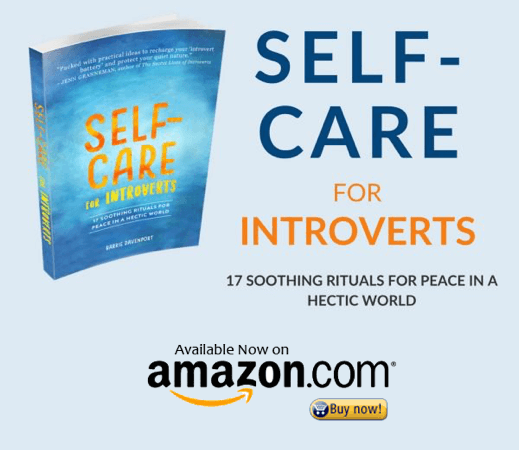Eloquium is a language school based on Aguascalientes.We aim towards providing the best educational services in the city.
viernes, 28 de junio de 2019
miércoles, 26 de junio de 2019
martes, 25 de junio de 2019
lunes, 24 de junio de 2019
sábado, 22 de junio de 2019
Characteristics of a fully functioning person
Fully functioning person
Optimal development, as referred to in proposition 14, results in a certain process rather than static state. He describes this as the good life, where the organism continually aims to fulfill its full potential. He listed the characteristics of a fully functioning person (Rogers 1961):
A growing openness to experience – they move away from defensiveness and have no need for subception (a perceptual defense that involves unconsciously applying strategies to prevent a troubling stimulus from entering consciousness).
An increasingly existential lifestyle – living each moment fully – not distorting the moment to fit personality or self-concept but allowing personality and self-concept to emanate from the experience. This results in excitement, daring, adaptability, tolerance, spontaneity, and a lack of rigidity and suggests a foundation of trust. "To open one's spirit to what is going on now, and discover in that present process whatever structure it appears to have" (Rogers 1961)
Increasing organismic trust – they trust their own judgment and their ability to choose behavior that is appropriate for each moment. They do not rely on existing codes and social norms but trust that as they are open to experiences they will be able to trust their own sense of right and wrong.
Freedom of choice – not being shackled by the restrictions that influence an incongruent individual, they are able to make a wider range of choices more fluently. They believe that they play a role in determining their own behavior and so feel responsible for their own behavior.
Creativity – it follows that they will feel more free to be creative. They will also be more creative in the way they adapt to their own circumstances without feeling a need to conform.
Reliability and constructiveness – they can be trusted to act constructively. An individual who is open to all their needs will be able to maintain a balance between them. Even aggressive needs will be matched and balanced by intrinsic goodness in congruent individuals.
A rich full life – he describes the life of the fully functioning individual as rich, full and exciting and suggests that they experience joy and pain, love and heartbreak, fear and courage more intensely. Rogers' description of the good life:
This process of the good life is not, I am convinced, a life for the faint-hearted. It involves the stretching and growing of becoming more and more of one's potentialities. It involves the courage to be. It means launching oneself fully into the stream of life. (Rogers 1961)
jueves, 20 de junio de 2019
How to deal with despise from someone
In my case I sometimes feel women despise me, they are not so smiley as they used to.
miércoles, 19 de junio de 2019
lunes, 17 de junio de 2019
Cambia el nombre de las actividades para darles un significado diferente
Por ejemplo has estado haciendo una actividad a la que le llamas feedback, cambiarlo por retroalimentación
jueves, 13 de junio de 2019
Both people must have well defined boundaries of what’s acceptable, and what’s not.
A well-defined boundary is when you make it clear to people what you will and won’t accept in your life. The problems arise when one of you starts to do something the other person doesn’t want in their life. For example, if you don’t like smoking and don’t want to be with a smoker, but that person starts smoking, you’ll feel a personal boundary is being violated.
- Reciprocation must be as close to equal as possible.
If you take out the garbage, they do the dishes. If they wash your car, you clean the carpets. If they buy your dinner, you get the next one. So on and so on.
There must be an attempt at understanding each other’s difficulties in life
- Without some alone time, you will develop resentment.
miércoles, 12 de junio de 2019
わたしの座右の銘
気を使うなら金使え
相手のことを思うとき、ただ思っているだけよりも、形に表れるようにお金を使いなさいという友人宅の家訓。
気を使っているそぶりを見せるだけではなく、行動に表せといった意味合いもあるのでしょう。
domingo, 9 de junio de 2019
Personality definitive list

List Of 600 Personality Traits
Last Updated on May 16, 2019
If someone asked you to describe your own personality, could you do it?
It's hard to have a true perspective on your own personality traits and how you express them in the world.
If you've never taken a personality test or read much about your personality type, you probably rely on the feedback you've heard about yourself from others.
“He's really outgoing.”
“She can be argumentative.”
“He's always uptight.”
“She has such calm demeanor.”
We take these descriptions and use them to help us craft what we believe to be our “personality.” Also, over time we learn things about ourselves — our preferences, how we behave in certain situations, and how we interact with others.
If we pay attention to our words and actions, we can assimilate and recognize more qualities that make up our personalities.
In general, personality consists of the recurring patterns of thoughts, emotions, characteristics, and behaviors that make a person unique.
It arises from within each individual and remains fairly consistent and permanent throughout life. Research suggests that personality is also influenced by biological processes and needs.
There are a number of theories about how our personalities develop, including type theories (like the Myers Briggs type) and trait theories.
The trait theory suggests that individual personalities are made up of broad dispositions, and many modern researchers believe there are five core personality traits:
Extraversion:Including characteristics such as excitability, sociability, talkativeness, assertiveness and high amounts of emotional expressiveness.
Agreeableness: Attributes such as trust, altruism, kindness, affection, and other prosocial behaviors. A tendency to be compassionate and cooperative rather than suspicious and antagonistic towards others.
Conscientiousness: High levels of thoughtfulness, good impulse control, and goal-directed behaviors. Those high in conscientiousness tend to be organized and mindful of details, as well as act dutifully, aim for achievement, and prefer planned rather than spontaneous behavior.
Neuroticism: Tendency to experience emotional instability, anxiety, moodiness, irritability, and sadness, as well as having a low tolerance for stress.
Openness: Characteristics such as imagination and insight, and a broad range of interests, as well as intellectual curiosity, creativity and a preference for novelty and variety.
Understanding more about our own personalities can help in how we relate to the people close to us — and help them understand us better. It can also improve the way we work and learn, as we know more about our natural traits and how we can work with them rather than against them.
What is your personality type? Click here to take quiz to discover your personality type.

If you want to dig deeper into your personality and the characteristics that comprise it, take a look at this list of personality traits:
POSITIVE TRAITS
Accessible
Active
Adaptable
Admirable
Adventurous
Agreeable
Alert
Amiable
Anticipative
Appreciative
Articulate
Aspiring
Athletic
Attractive
Balanced
Benevolent
Brilliant
Calm
Capable
Captivating
Caring
Challenging
Charismatic
Charming
Cheerful
Clean
Clear-headed
Clever
Colorful
Companionly
Compassionate
Conciliatory
Confident
Conscientious
Considerate
Constant
Contemplative
Cooperative
Courageous
Courteous
Creative
Cultured
Curious
Daring
Debonair
Decent
Decisive
Dedicated
Deep
Dignified
Directed
Disciplined
Discreet
Dramatic
Dutiful
Dynamic
Earnest
Ebullient
Educated
Efficient
Elegant
Eloquent
Empathetic
Energetic
Enthusiastic
Esthetic
Exciting
Extraordinary
Fair
Faithful
Farsighted
Felicific
Firm
Flexible
Focused
Forceful
Forgiving
Forthright
Freethinking
Friendly
Fun-loving
Gallant
Generous
Gentle
Genuine
Good-natured
Gracious
Hardworking
Healthy
Hearty
Helpful
Heroic
High-minded
Honest
Honorable
Humble
Humorous
Idealistic
Imaginative
Impressive
Incisive
Incorruptible
Independent
Individualistic
Innovative
Inoffensive
Insightful
Insouciant
Intelligent
Intuitive
Invulnerable
Kind
Knowledge
Leader
Leisurely
Liberal
Logical
Lovable
Loyal
Lyrical
Magnanimous
Many-sided
Masculine
Mature
Methodical
Meticulous
Moderate
Modest
Multi-leveled
Neat
Objective
Observant
Open
Optimistic
Orderly
Organized
Original
Painstaking
Passionate
Patient
Patriotic
Peaceful
Perceptive
Perfectionist
Personable
Persuasive
Playful
Polished
Popular
Practical
Precise
Principled
Profound
Protean
Protective
Providential
Prudent
Punctual
Purposeful
Rational
Realistic
Reflective
Relaxed
Reliable
Resourceful
Respectful
Responsible
Responsive
Reverential
Romantic
Rustic
Sage
Sane
Scholarly
Scrupulous
Secure
Selfless
Self-critical
Self-defacing
Self-denying
Self-reliant
Self-sufficent
Sensitive
Sentimental
Seraphic
Serious
Sexy
Sharing
Shrewd
Simple
Skillful
Sober
Sociable
Solid
Sophisticated
Spontaneous
Sporting
Stable
Steadfast
Steady
Stoic
Strong
Studious
Suave
Subtle
Sweet
Sympathetic
Systematic
Tasteful
Teacherly
Thorough
Tidy
Tolerant
Tractable
Trusting
Uncomplaining
Understanding
Undogmatic
Upright
Urbane
Venturesome
Vivacious
Warm
Well-bred
Well-read
Well-rounded
Winning
Wise
Witty
Youthful
NEUTRAL TRAITS
Absentminded
Aggressive
Ambitious
Amusing
Artful
Ascetic
Authoritarian
Big-thinking
Boyish
Breezy
Businesslike
Busy
Casual
Cerebral
Chummy
Circumspect
Competitive
Complex
Confidential
Conservative
Contradictory
Crisp
Cute
Deceptive
Determined
Dominating
Dreamy
Driving
Droll
Dry
Earthy
Effeminate
Emotional
Enigmatic
Experimental
Familial
Folksy
Formal
Freewheeling
Frugal
Glamorous
Guileless
High-spirited
Hurried
Hypnotic
Iconoclastic
Idiosyncratic
Impassive
Impersonal
Impressionable
Intense
Invisible
Irreligious
Irreverent
Maternal
Mellow
Modern
Moralistic
Mystical
Neutral
Noncommittal
Noncompetitive
Obedient
Old-fashioned
Ordinary
Outspoken
Paternalistic
Physical
Placid
Political
Predictable
Preoccupied
Private
Progressive
Proud
Pure
Questioning
Quiet
Religious
Reserved
Restrained
Retiring
Sarcastic
Self-conscious
Sensual
Skeptical
Smooth
Soft
Solemn
Solitary
Stern
Strict
Stubborn
Stylish
Subjective
Surprising
Soft
Tough
Unaggressive
Unambitious
Unceremonious
Unchanging
Undemanding
Unfathomable
Unhurried
Uninhibited
Unpatriotic
Unpredictable
Unsentimental
Whimsical
NEGATIVE TRAITS
Abrasive
Abrupt
Agonizing
Aggressive
Aimless
Aloof
Amoral
Angry
Anxious
Apathetic
Arbitrary
Argumentative
Arrogant
Artificial
Asocial
Bewildered
Bizarre
Bland
Blunt
Boisterous
Brittle
Brutal
Calculating
Callous
Cantankerous
Careless
Charmless
Childish
Clumsy
Coarse
Cold
Colorless
Complacent
Complaining
Compulsive
Conceited
Condemnatory
Conformist
Confused
Contemptible
Conventional
Cowardly
Crass
Crazy
Criminal
Critical
Crude
Cruel
Cynical
Decadent
Deceitful
Delicate
Demanding
Dependent
Desperate
Destructive
Devious
Difficult
Disconcerting
Discontented
Discouraging
Discourteous
Dishonest
Disloyal
Disobedient
Disorderly
Disorganized
Disputatious
Disrespectful
Disruptive
Dissonant
Distractible
Disturbing
Dogmatic
Domineering
Dull
Easily Discouraged
Egocentric
Envious
Erratic
Escapist
Extravagant
Extreme
Faithless
False
Fanatical
Fanciful
Fatalistic
Fawning
Fearful
Fickle
Fiery
Fixed
Flamboyant
Foolish
Forgetful
Fraudulent
Frightening
Frivolous
Gloomy
Graceless
Greedy
Grim
Gullible
Hateful
Haughty
Hedonistic
Hesitant
Hidebound
High-handed
Hostile
Ignorant
Imitative
Impatient
Impractical
Imprudent
Impulsive
Inconsiderate
Incurious
Indecisive
Indulgent
Inert
Inhibited
Insecure
Insensitive
Insincere
Insulting
Intolerant
Irascible
Irrational
Irresponsible
Irritable
Lazy
Malicious
Mannerless
Mechanical
Meddlesome
Melancholic
Messy
Miserable
Miserly
Misguided
Mistaken
Money-minded
Moody
Morbid
Muddle-headed
Naive
Narcissistic
Narrow
Narrow-minded
Negative
Neglectful
Neurotic
Nihilistic
Obnoxious
Obsessive
Obvious
Odd
Offhand
One-dimensional
One-sided
Opinionated
Opportunistic
Oppressed
Outrageous
Paranoid
Passive
Pedantic
Perverse
Petty
Plodding
Pompous
Possessive
Power-hungry
Predatory
Prejudiced
Presumptuous
Pretentious
Prim
Procrastinating
Provocative
Puritanical
Quirky
Reactionary
Reactive
Regimental
Regretful
Repentant
Repressed
Resentful
Ridiculous
Rigid
Ritualistic
Ruined
Sadistic
Sanctimonious
Scheming
Scornful
Secretive
Sedentary
Selfish
Self-indulgent
Shallow
Shortsighted
Sloppy
Slow
Sly
Small-thinking
Softheaded
Sordid
Steely
Stiff
Stupid
Submissive
Superficial
Superstitious
Suspicious
Tactless
Tasteless
Tense
Thievish
Thoughtless
Timid
Transparent
Treacherous
Trendy
Troublesome
Unappreciative
Uncaring
Uncharitable
Unconvincing
Uncooperative
Uncreative
Uncritical
Unctuous
Undisciplined
Unfriendly
Ungrateful
Unhealthy
Unimaginative
Unimpressive
Unlovable
Unpolished
Unprincipled
Unrealistic
Unreflective
Unreliable
Unrestrained
Unstable
Vacuous
Vague
Venomous
Vindictive
Vulnerable
Weak
Willful
278
Click Here to Leave a Comment Below
Thanks for a great post. I had no idea there were many different types. I always wondered why I never seem to fit in one group but now I understand why. They are so many positive, negative and neutrals that I am never completely cover all that I am. This will help me to more understand why I behave the way I do and feel. I will constantly refer to this list.
Ma Bresnahan
It’s a shame you don’t have a donate button! I’d certainly donate to this outstanding blog! I guess for now i’ll settle for book-marking and adding your RSS feed to my Google account. I look forward to new updates and will talk about this site with my Facebook group. Talk soon!
Personality Type: How It Impacts 3 Key Areas of Your Life | Live Bold and Bloom
[…] can take a look at the 16 possible personality types here with a brief description of each type. You might be able to guess your own type by reading […]
Thanks, it helped me study I used 200 of them.
This list is AWESOME!! It is great to see that someone compiled this thorough of a list. I am passionate about studying fragmentation\shadow work so looking at how we project what we wrte yaught was negative off ourselvescan onto others. I am looking at how all traits are possible aspects of the wholeness of being human. So that means that there are no truly negative traits. Only our own judgments from our past experience. If one can embrace all of these traits without judgment then we can learn to be unconditionally loving to our own selves. And since we are no longer fragmented into believing that some traits are good and some are bad we can also be unconditionally loving with others. Thank you so much for this list!
anonymous
one word. AMAZING
Habeel
List is awesome, but is it me or this list isn’t 600.
Sinmoy Medhi
Great
leenlins02
Great.
Mya
This helped me a lot to finish my project and this helps me to figure what I am and what I can do. 🙂
Shayn
This list has one positive list and three negative lists, which include negatives like cute, effeminate, whimsical, folksy, quiet, and trendy. Apparently I’m a really shitty person. <3
I just Love this list!! It helped me a lot on making personalities for my characters in my game I am hoping to make a reality. I really appreciate it! <3
Stacey Donovan
Useful list, but sexist. If “masculine” is a positive trait, “feminine” should be listed as a positive trait as well.
Leave a Reply:
Save my name, email, and website in this browser for the next time I comment.
>> Click to Grab the FREE Ebook: 99 Confidence Hacks To Massively Boost Confidence <<
RECENT POSTS ON LBB
How To Deal With Gaslighting In A Relationship
125 Positive Affirmations For Kids To Help Them Grow Up Happy and Confident
22 Funny Get To Know You Questions
What Is Toxic Shame And How To Deal With It
17 Gifts For The Woman Who Wants Nothing
31 Quotes About Toxic People That Are So Spot On
14 Essential Types Of Goals To Set And Achieve
How To Express Your Condolences Beyond “I’m Sorry For Your Loss”
31 Comforting Things To Say When Someone Dies
CONNECT WITH US
https://www.pinterest.com/liveboldandbloom/
POPULAR NOW ON LBB
17 Of The Most Fun Games For Couples
20 Best Audiobooks For A Road Trip in 2019
Devastating Signs Of Emotional Abuse In A Love Relationship
28 Easy Things To Draw To Boost Your Mood
103 Of The Best Relationship Questions
65 Beautiful Good Morning Messages For Him or Her
Affiliate links are used on this site. But each is to a product that we've researched and highly recommend.
We receive advertising fees from qualifying purchases on Amazon. Always do your own research before making any online purchase.
Copyright 2019 by Live Bold and Bloom.

53
Shares
sábado, 8 de junio de 2019
How to forgive
Find a Therapist (City or Postcode)
The Power of Forgiveness: Why Revenge Doesn't Work
Learn the benefits of compassion and how to experience forgiveness.
Posted Sep 08, 2011
In my new book I emphasize the importance of forgiveness and why revengedoesn’t work. Forgiveness is the act of compassionately releasing the desire to punish someone or yourself for an offense. It’s a state of grace, nothing you can force or pretend. There are no short cuts. Mistakenly, some of my patients, wanting to be “spiritual,” have prematurely tried to forgive after someone emotionally knifes them in the gut. First, you must feel angerbefore you can begin to forgive. I gradually guide patients to the large-heartedness of forgiving injuries either caused by others or self-inflicted.
article continues after advertisement
Revenge is the desire to get even when someone does you wrong. It’s natural to feel angry, to say “I’m not going to let that **** get away with this,” whatever “this” is. However, revenge reduces you to your worst self, puts you on the same level with those spiteful people we claim to abhor. Additionally, studies have shown that revenge increases stress and impairs health and immunity. Sure, if someone hits you with a stick, you have the impulse to hit them back--the basis for wars. To thrive personally and as a species, we must resist this predictable lust for revenge, and seek to right wrongs more positively. This doesn’t make you a pushover; you’re just refusing to act in a tediously destructive way antithetical to ever finding peace. As Confucious says, "Before you embark on a journey of revenge, dig two graves."
What I’m suggesting is a version of “turn the other check” yet still doing everything to preserve what’s important to you. The hard part, though, is watching someone “get away with something” when there’s nothing you can do about it. Yes, your wife left you for the yoga instructor. Yes, your colleague sold you out. With situations like this in my life, I take solace in the notion of karma, that sooner or later, what goes around comes around. Also know that the best revenge is your success, happiness, and the triumph of not giving vindictive people any dominion over your peace of mind.
article continues after advertisement
Forgiveness refers to the actor not the act. Not to the offense but the woundedness of the offender. This doesn’t mean you’ll run back to your battering spouse because of compassion for the damaged person he or she is. Of course you want to spare yourself mistreatment. However, from a distance, you can try to forgive the conscious or unconscious suffering that motivates people. Our desire to transform anger is a summoning of peace, well worth the necessary soul stretching.
To experience forgiveness, try this exercise from “EMOTIONAL FREEDOM’
Emotional Action Step. Be Bigger Than Anger--Practice Forgiveness Now
Identify one person you’re angry with.Start with someone low on your list, not your rage-aholic father. Then you can get a taste of forgiveness quickly. After that you can proceed to tackle more challenging targets.
Honestly address your feelings. Talk to friends, your therapist, or other supportive people, but get the anger out. I also recommend writing your feelings down in a journal to purge negativity. Then, decide whether you want to raise the issue with someone.
Begin to forgive. Hold the person you’re angry with clearly in your mind. Then ask yourself, “What emotional shortcomings caused him or her to treat me poorly?” This is what you want to have compassion for, the area to forgive. Definitely, don’t subject yourself to shabby treatment, but reach for compassion for the person’s emotional blindness or cold heart.
article continues after advertisement
Here’s how forgiveness can work in a range of situations where you’d have every right to be angry. It establishes a kinder mindset whether or not you decide to confront someone.
A good friend acts inconsiderately when she’s having a bad day.Remember, nobody’s perfect. You may want to let the incident slide. If you do mention it, don’t make this one-time slight into a big deal. Give your friend a break--forgive the lapse.
A coworker takes credit for your ideas.Do damage control, whether it means mentioning this situation to the coworker, your boss, or Human Resources, and don’t trust her with ideas in the future. However, try to forgive the coworker for being such a greedy, insecure, mean-spirited person that she has to stoop so low as to steal from you.
Your mother-in-law is needy or demanding. Keep setting kind but firm boundaries so over time you can reach palatable compromises. But also have mercy on the insecurities beneath her neediness and demands--perhaps fearof being alone, of aging, of being excluded from the family, of not being heard. This will soften your response to her.
You suffered childhood abuse. The healing process of recovering from abuse requires enormous compassion for yourself and is facilitated by support from other abuse survivors, family, friends, or a therapist. Still, if you feel ready to work towards forgiveness of an abuser, it necessitates seeing the brokenness and suffering that would make the person want to commit such grievous harm. You’re not excusing the behavior or returning to it, but grasping how emotionally crippled he or she is, a huge stretch of compassion, but the path to freedom.
Forgiveness is a paradigm-shifting solution for transforming anger. It liberates you from the trap of endless revenge so that you can experience more joy and connection. Forgiveness does more for you than anyone else because it liberates you from negativity and lets you move forward. Forgiving might not make anger totally dissolve but it will give you the freedom of knowing you are so much more.
Judith Orloff MD is the author of the New York Times bestseller Emotional Freedom: Liberate Yourself From Negative Emotions and Transform Your Life (Three Rivers Press, 2011) upon which this article is based. Her work has been featured on The Today Show, CNN, the Oprah Magazine and USA Today. Dr. Orloff synthesizes the pearls of traditional medicine with cutting edge knowledge of intuition and energy medicine. An Assistant Clinical Professor of Psychiatry at UCLA, she passionately believes that the future of medicine involves integrating all this wisdom to achieve emotional freedom and total wellness. For more inspiration visit www.drjudithorloff.com.
article continues after advertisement
About the Author
Judith Orloff, M.D., is an assistant clinical professor of psychiatry at UCLA and the author of The Empath's Survival Guide.
Online:
More Posts
How to De-Stress Over the Holidays
The Secret to Managing Being Overwhelmed
Beware of the Go-For-the-Jugular Vampire
Most Popular
Is Your Partner Truthful or Are You Being Manipulated?
Is Emotional Intelligence Something You Can Learn?
Your First Date Went Well—So Why Don’t They Want a Second?
32 Things Introverts Wish You Knew
Four Ways to Cope with Stress You Likely Haven't Thought Of
More Like This
Why Wisdom Doesn't Work as Well as We Think It Does
“I Know It Doesn't Feel Right But Everyone Else Is Doing It"
The Workaholic Breakdown Syndrome—Guilt
Tap the Power of Your Dreams: Remembering and Interpreting Their Life Changing Messages
The Power of an Animal's Unconditional Love
Get the help you need from a therapist near you–a FREE service from Psychology Today.
Cities:
Are you a Therapist?
Psychology Today © 2019 Sussex Publishers, LLC
Signs of emotional abuse

50 Powerful Questions That Can Help You Identify The Signs Of Emotional Abuse
Emotional abuse can be devastating. In this article, the signs of emotional abuse are explored in-depth.
By Shahida ArabiUpdated October 14, 2018
It is a common misconception that abuse has to be physical in order to be impactful. Yet some of the most devastating forms of violence do not leave scars. Psychological violence causes us to endure an invisible war zone, one where the battle wounds cannot be seen but are deeply felt nonetheless.
What Is Emotional Abuse?
Emotional abuse is a set of behaviors in which a person manipulates, coerces, controls, belittles and terrorizes another person repeatedly. Chronic emotional abuse takes a toll on victims, causing them to struggle with depression, anxiety, feelings of worthlessness, hopelessness and learned helplessness. In extreme cases, long-term emotional abuse can cause symptoms of PTSD or Complex PTSD.
When one person emotionally abuses another, it can include the following behaviors:
Calling the victim names.
Mocking, shaming or humiliating the victim.
Ignoring the victim and emotionally withdrawing from them.
Threatening the victim or coercing them into activities they don’t want to engage in.
Making cruel remarks towards the victim regarding their appearance, personality, lifestyle, career choices, friends or any other aspect of the victim’s personal, social or professional life.
Verbally assaulting and insulting the victim, sometimes under the guise of “joking.”
Emotionally invalidating the partner or pathologizing their emotions.
Subjecting them to overt and covert put-downs as well as rage attacks.
Using intimidation as a control tactic.
Controlling the victim’s finances.
Micromanaging the victim’s social life.
Isolating the victim from friends and family.
Stonewalling the victim during discussions.
Giving victims the silent treatment for no apparent reason.
Gaslighting the victim into believing that they are imagining things or are oversensitive when they call out the abuse.
Repeatedly treating the victim with contempt, scorn and disdain.
There are also many other underhanded and subtle ways in which a victim can be emotionally abused, such as triangulation(bringing in the presence of a third party to abuse by proxy), smear campaigns (spreading rumors or gossip to ruin the victim’s reputation), and hot and cold behavior(pushing the victim away and emotionally withdrawing, intermittently throwing in periods of affection). Emotionally abusive partners may also lie pathologically and lead double lives, causing their victims to invest in a false partnership that ultimately brings harm and devastation.
Who Are The Culprits of Emotional Abuse?
Emotional abuse can be committed by toxic people at all points of the spectrum. There are some emotionally abusive people who are able to work on their toxic behaviors, but these people tend to be lower on the spectrum of toxicity, demonstrate a willingness to change and possess empathy for others. Most emotionally abusive people who are on the higher end of the spectrum tend to be incapable of change because they possess a lack of empathy, an excessive sense of entitlement and a callous disregard for the rights and feelings of others.
Some emotionally abusive people learn these behaviors early in childhood by modeling behavior from their parents and end up perpetuating the cycle. Other emotionally abusive people might possess more hard-wired narcissistic or sociopathic traits or even meet the full-fledged criteria of Narcissistic Personality Disorder or Antisocial Personality Disorder. These predatory individuals tend to abuse behind closed doors in order to escape accountability; their emotional abuse is inflicted upon their partners to deliberately demean and control them.
“The methods sociopaths dream up to control others – the schemes contrived to ensure “wins” – are quite various, and only a few of them have to do with physical violence.” – Martha Stout, The Sociopath Next Door
The Impact of Emotional Abuse on the Survivor
When emotional abuse takes place in childhood, it wreaks havoc on the mental architecture of the brain, affecting areas such as the amygdala, the hippocampus and the prefrontal cortex. These areas of the brain help with emotional regulation, learning, memory, focus, cognition and planning.
Many survivors of emotional abuse, whether they suffered it in childhood, adulthood or both, struggle with a sense of powerlessness as they are repeatedly put down. As a result of these adverse experiences, they may turn to self-destructive behavior, become trauma-bonded to their abusers and find it difficult to leave the toxic relationship.
How To Tell If You’re Being Emotionally Abused
Here are fifty “loaded” questions you should ask yourself if you think you’re being emotionally abused in a relationship. These questions take into account the fact that you already suspect you’re being abused. Your answers to these questions can give you insight regarding the emotionally abusive behaviors you might be currently experiencing, can help you to identify the red flags of abuse and assess the level of toxicity in your relationship.
1. Does your partner enjoy humiliating you in public?
2. What is the worst way in which your partner has used your own insecurities against you?
3. Do you find that the way your partner treated you in the beginning of the relationship is unrecognizable from the way your partner treats you now?
4. How often does your partner make you feel sorry for them after mistreating you?
5. Are you persistently made to feel guilty for voicing your concerns in the relationship?
6. Does your partner shame you about qualities or traits you have that they once praised?
7. Does your partner shut down conversations about their behavior before they even have a chance to begin?
8. Is your partner nicer and more respectful to others in public than they are to you behind closed doors?
9. When your partner gives you the silent treatment, do they usually explain themselves or do they continue to ignore you and come back only to pretend like nothing ever happened?
10. Does your partner continuously claim that you’re too sensitive when you express your emotions?
11. Do you find yourself questioning your own reality on a daily basis?
12. Have you been made to doubt things that you know for a fact your partner has said or done?
13. Does your partner call you names when he or she doesn’t get their way?
14. Are you afraid to express your true feelings around your partner because of the way they’ve reacted to you in the past?
15. Do you feel like your accomplishments are belittled, ignored or minimized by your partner?
16. How often are you made to feel insecure and invisible when your partner engages in conversations with people of the opposite sex?
17. Does your partner frequently compare you to others in a demeaning way in terms of appearance, personality, success or any other aspect of yourself they like to criticize?
18. Do you feel like you’re always walking on eggshells around this person, careful what to say or do just to avoid “offending” them?
19. Does the way your partner looks at or talks about other women or men (whoever they are attracted to) make you feel uncomfortable?
20. Has your partner reminded you of how lucky you are to have them, usually after an outburst?
21. Does your partner have frequent rage attacks when their ego is threatened?
22. If you call out your partner’s behavior, do they become excessively angry?
23. Are you allowed to ever point out your partner’s mistakes, even in a light-hearted manner?
24. How often does your partner make you feel ashamed about qualities and accomplishments you used to be proud of?
25. Do you find yourself apologizing for things you’re not at fault for in the relationship?
26. Has your partner ever compared you to others and made you feel as if you were in ‘competition’ with other people for their attention and love?
27. Do you find yourself apologizing for the mistakes that your partner made but refuses to own up to?
28. How many times has your partner accused you of having flaws that they themselves possess?
29. In what ways has your partner turned the things you used to enjoy doing into things you dread doing?
30. How does your body react when you’re around your partner?
31. Do you feel overly anxious when you think about how your partner treats you?
32. How many ways have you wasted time trying to please your partner, only to learn that they are never satisfied with anything you do?
33. In what ways do you feel you have to ask permission from your partner before you do something?
34. Have you ever gotten the sense that your partner is envious and hateful when you’re happy and successful?
35. Does your partner seem happy when you’re in pain?
36. Does your partner often comfort you, come to the rescue and ‘play the savior’ for the pain that they themselves caused?
37. Do you find that your partner gives you more negative feedback and criticism about yourself than they do encouragement?
38. Has your partner punished you for making choices independent of their opinion?
39. Have you ever felt limited in your ability to see your loved ones because of your partner?
40. How frequently does your partner call or text you to “check in” when you’re not with them?
41. Has your partner ever coerced you into sexual activities you weren’t comfortable with?
42. Has your partner ever made you feel guilty for not having sex with them?
43. Do you fear leaving your partner, out of the fear that they might harm you or harm themselves?
44. Does your partner discourage you from pursuing dreams or goals that would make you independent of them?
45. How often do you feel like you’re pleading for your partner’s affection or attention?
46. How many times has your partner insulted you and made you feel terrible, all while claiming “it was just a joke”?
47. Have you been told you’re too sensitive when you start setting boundaries with your partner?
48. When your partner is acting kind, does it seem out of place with the way they usually act?
49. Does your partner treat you tenderly and affectionately one second, only to pull back and coldly withdraw?
50. When your partner tells you they love you, do you have a hard time believing them because the way they act is anything butloving?
RELATED
11 Signs You’re The Victim of Narcissistic Abuse
Five Ways We Rationalize Abuse And Why We Need To Stop
Shahida is the author of Power: Surviving and Thriving After Narcissistic Abuse and the poetry book She Who Destroys the Light. She is a staff writer at Thought Catalog. Follow Shahida on Instagram or read more articles from Shahida on Thought Catalog.
ABUSE ABUSIVE RELATIONSHIPS EMOTIONAL ABUSE EMOTIONAL AND VERBAL ABUSE EMOTIONALLY ABUSIVE RELATIONSHIP GASLIGHTING NARCISSISTIC ABUSE PSYCHOLOGICAL ABUSE PTSD SIGNS OF A NARCISSISTIC RELATIONSHIP SIGNS OF EMOTIONAL ABUSE TOXIC RELATIONSHIPS TRAUMA TRIANGULATION
35.4k
A Book For Those Recovering From Narcissistic Abuse…
Remember— highly manipulative people don’t respond to empathy or compassion. They respond to consequences.
“I rarely write reviews but I’m so impressed by this book, I can’t recommend it enough for anyone who has suffered abuse by a narcissist or is trying to get out of an abusive relationship now. You deserve the best and more… so I strongly encourage you to get this book!” — Michelle Spurling
“This book was life changing. It completely validated everything from my experiences (suicide, anxiety, depression, “neediness”, literally everything). It took every detail from my past struggles and validated and helped make sense of everything. It’s like I was reading my own biography.” — Drew Rod
MORE FROM THOUGHT CATALOG
11 Signs You’re The Victim of Narcissistic Abuse
Five Ways We Rationalize Abuse And Why We Need To Stop
The Invisible War Zone: 5 Ways Children Of Narcissistic Parents Self-Destruct In Adulthood
50 Shades Of Gaslighting: Disturbing Signs An Abuser Is Twisting Your Reality
30 Kickass Affirmations For Going No Contact With An Abusive Narcissist
7 Spiritual Ideas That Enable Abuse And Shame The Victim
CONTENT
COMPANY
LEGAL
A website by Thought.is
© 2019 The Thought & Expression Company, LLC.
All rights reserved. Powered by WordPress.com VIP.
![]()
×
miércoles, 5 de junio de 2019
martes, 4 de junio de 2019
lunes, 3 de junio de 2019
Must be after labor shift vs must be done after labor shift
Tipología de los errores más comunes en inglés número 2 error en el uso de un mismo tema gramatical hay muchas personas que conocen el modal must Pikolín que esté moda solamente tiene un uso el de obligación es por eso que cuando intentan de usarlo se equivocan al querer usarlo de manera incorrecta no tienen en cuenta que el modal must no se restringe a ser usado como obligación sino también puede ser usado como suposición la otra vez oí decir a alguien
That operations must be after night
Qué significa días lo traducijiesemos al español
esa operación A lo mejor sería después de la noche cuando en realidad el hablante intento decir en inglés
That operation must be done after night
podemos observar que le falta el verbo para tener el significado completo
y que si tradujeramos en español diría esta operación debe hacerse después de la noche Qué es el significado real que la persona quiso darle desde el principio
este punto gramatical es lo mismo que la diferencia en español entre debe y debe de que muchos hablantes nativos también usamos incorrectamente en español recordemos que debe de es una suposición y debe se refiere a una obligación es igual que el must-have ligacion teorizando sobre el origen de este error lo más probable es que surja por la ignorancia en cuanto a los dos usos básicos igual que en español la única forma de eliminar este error fosilizado es mediante la la observación de la diferencia de uso entre cada uno de los dos.
primero vamos a ir ejemplos del uso de must como obligación por ejemplo debe ser definido it must be defined debe ser transparente it must be transparent debe ser capaz it must be able debe ser presentado it must be introduced debe ser mencionado it must be mentioned
Debe ser ordenado it must be ordered debe ser admirado it must be admired
Cómo podemos ver en este caso el verbo el móvil debe ser seguido por verbo en pasado participio o por un adjetivo para denotar obligaciónpero más que la estructura gramatical la queremos ver la función aquí la funciones para dar una orden.
Vamos a ver ejemplos de most usados como suposiciones empezamos debes estar cansado. You must be tired
You must be after something very good has de estar sobre algo muy importante
It must be after 2
Han de pasar de las 2
Cómo podemos ver el must para suposiciones cercano al español significado como el ha de han de o como el debe de del español que usamos incorrectamente

























